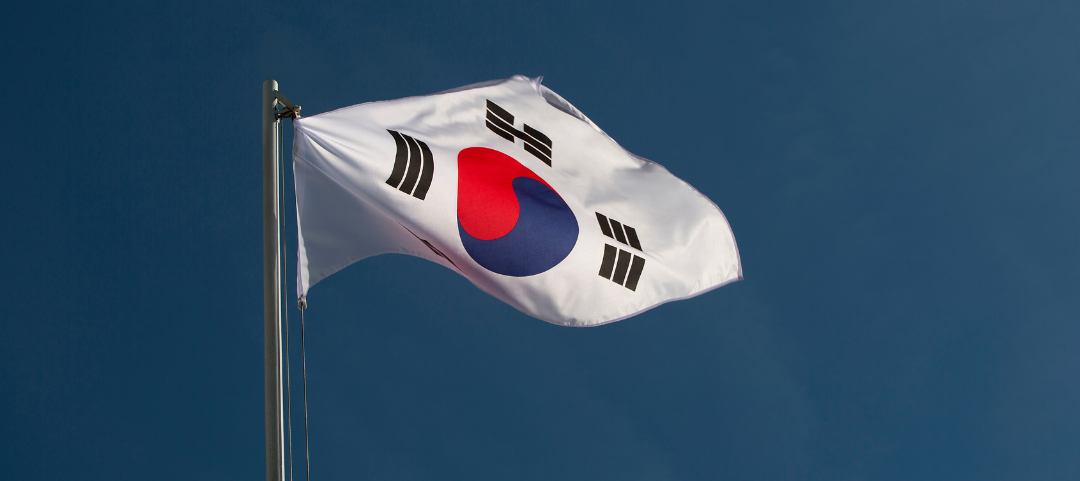Top Banks in South Korea
Banks and non-bank financial institutions make up the majority of the financial sector in South Korea.
Banks and non-bank financial institutions make up the majority of the financial sector in South Korea. The Financial Supervisory Service and the Financial Services Commission oversee its management.

Specialized banks, state-owned banks, securities, insurance firms, and other financial institutions are under the control of the finance service committee and the financial supervisory service committee to oversee and inspect all banks.
The Financial Services Council (FSC), formerly known as the Financial Supervisory Commission, is the government of South Korea's chief financial watchdog. In addition to directing the Financial Supervisory Service, it establishes economic policies.
In 1998, the Financial Supervisory Commission was created.
The Financial Services Commission has changed its name to the Financial Services Commission since the start of the Lee Myung-bak government. The newly established organization replaced the Treasury as the policy-making body.
The Financial Supervisory Service (FSS) is South Korea's all-encompassing financial regulator. It examines and oversees financial institutions under the general supervision of the Financial Services Commission (FSC), a government agency made up of city officials.
The financial restructuring process and strengthening of the regulatory and administrative structure in the financial sector were made possible by the FSC and FSS.
In the 1980s, South Korea's financial sector included a diverse commercial banking system, a securities market, and secondary financial institutions.
The Kookmin Bank of Japan opened branches in Korea in late 1878, which marked the beginning of the development of the current Korean banking system. The banking industry in Korea underwent reorganization from 1997 to 2002.
Since the 1997 Asian financial crisis, South Korea's financial system has greatly improved in quantity and quality.

Early in the new millennium, there was a significant increase in bank employees and total assets, accompanied by the consolidation of banks and the subsequent creation of financial holding corporations.
More overseas investors and financial institutions are coming to South Korea to invest as the financial industry continues to open up.
The transition of the Korean banking industry from a loss-making bank to a profitable one has been significantly aided by the introduction of the international capital market.
The 59 branches of Korea's commercial banks (including overseas branches), 12 specialized banks, and 79 mutual savings banks are all in operation.
A 1.5 billion won capital was used to launch the Bank of Korea in 1950. The Bank executes the nation's monetary and credit policies and negotiates with the government to determine price stability. Coins and paper money are also produced by it.
Top Banks in South Korea
Here is the description of each of these banks in detail:
1. Shinhan Financial Group
The first Bank in Korea to operate under the name Han Seong Bank was Shinhan Financial Group, which opened its doors in 1897. Around 13,000 people work for the corporation, which has its headquarters in Seoul.

The largest banking organization in Korea is Shinhan Financial. The largest credit card company in the nation is Shinhan Card, a brokerage firm Shinhan Investment. It has a top-five position in life insurance following the acquisition of Orange Life among the non-bank units.
Additionally, it owns the regional Bank Jeju Bank, the leasing company Shinhan Capital, and Shinhan Asset Management.
Financial services for consumer and business banking are offered by Shinhan Financial Group (SFG) in their entirety. In addition, retail banking, international banking, and other banking divisions are how the Bank conducts business.
It offers asset management, trust banking, and securities brokerage services to private customers, businesses, and other financial organizations.
It is responsible for 723 branches, 29 private wealth management service centers within its country, and 14 branches abroad. In 2017, it was named the Best Bank in Asia.
2. NongHyup Financial Group
NongHyup Bank was once known as the National Agricultural Cooperative Federation.
The NongHyup Financial Group, which dates back to 1961 when the Agricultural Bank and Agricultural Federation joined, is the Bank's parent company, founded in 2012. NongHyup Bank is a component of this group.

The organization hopes to improve its quality of life and economic prosperity by providing financial services to farmers.
The group provides various financial services and has the largest professional network in Korea.
The company offers financing, mortgage loans, consumer credit, corporate financing, real estate financing, new technology financing, and other services. Additionally, it provides life, property, and casualty insurance products.
The Bank has its headquarters in Seoul, employs 13,400 people, and has 1,200 branches in addition to 4,786 cooperative member branches.
Moreover, a Hong Kong banking license was given to Nonghyup Bank on April 29, 2021.
3. KB Financial Group
Seoul serves as the home base for KB Financial Group, established in 2008. It is a holding company for financial services that contract with subsidiaries to deliver those services.
The group is a top provider of financial services in South Korea with a vast array of financial products and services.

Retail banking, corporate banking, other banking, credit cards, investments and securities, and life insurance are a few different business segments that comprise the group.
Under the umbrella of KB Financial Group, there are 13 subsidiaries.
It includes Kookmin Bank, KB Securities, KB Insurance, KB Kookmin Card, Prudential Life Insurance Korea, KB Asset Management, KB Capital, KB Life Insurance, KB Real Estate Trust, KB Savings Bank, KB Investment, KB Data Systems, KB Credit Information.
With offices in Europe, Asia, the Americas, and Oceania, the Bank has a presence and serves clients worldwide.
4. Hana Financial Group
The company's headquarters are in Seoul, South Korea, established on December 1, 2005.
Hana Financial Group, a significant South Korean financial organization, offers integrated services through its subsidiaries, KEB Hana Bank, Hana Daetoo Securities, KEB Hana Card, and Hana Life.
It is one of the major banking groups in the nation by assets, along with its rival Shinhan Financial Group.

It provides lending, deposit services, debit and credit cards, asset management, insurance, capital markets, investment banking solutions, and foreign exchange and brokerage solutions.
The group offers accounting and trust services for banks, pension funds, securities companies, and other organizations.
It also manages software development and upkeep for the financial services sector, real estate, private investment trusts, and equipment leasing.
By utilizing its global network, it seeks to improve its services abroad, particularly in China. Also, the group has operations in the Americas, Europe, the Middle East, and the Asia Pacific.
5. Korea Development Bank
The KDB was established in 1954 and had its headquarters in Seoul. Its mission is to develop and maintain the country's financial, corporate, and industrial systems.

KDB has eight representative offices, nine branches abroad, and nine domestically.
KDB has consistently advocated the corporate sector and public financing. In corporate banking, development financing, and corporate structure development, it has broadened its horizons and developed extremely thorough knowledge.
By supplying resources and financial know-how to today's top global enterprises and international organizations, KDB has been a major force behind Korea's extraordinary economic success through its financing activities.
It has become clear that Korea Development Bank (KDB) is a market innovator and stabilizer.
The main business sectors are corporate banking and reorganization, investment banking, venture capital, technology finance and consultancy, international financing company, pension and trust, research, and credit assessment.
With 10 branches, 6 subsidiaries, and 7 representative offices abroad, the growing global IKB network is a major participant.
KDB has representative offices in London, Hungary, Ireland, Frankfurt, and Germany.
6. Woori Financial Group
Woori Financial Group is a holding corporation for banking and financial services, with its main office in Seoul. The objective is to support the growth of the national economy.
Woori has very recently existed as a financial organization. To create it, four previous commercial banks and an investment bank merged in 2001.

Because the banks' capital adequacy ratio fell below the Basel I Accord's statutory eight percent level, the government took control and recapitalized them.
Therefore, the largest investor is still the South Korean Government through the Korean Deposit Insurance Corporation.
This resulted from the 1997 Asian financial crisis, which impacted the functioning of almost all South Korean banks and financial institutions.
Woori Financial Group offers commercial banking services and products to small and big businesses and individuals in South Korea. It operates through six divisions: consumer banking, corporate banking, capital markets, investment banking, credit cards, and others.
It runs branches in 22 foreign locations, has 989 units in South Korea, and has 16,000 employees.
7. Industrial Bank of Korea
The Industrial Bank of Korea (IBK) has been dedicated to upholding its commitment to financing small and medium-sized businesses since its founding in 1961.
IBK offers various services, including retail Banking, Corporate Banking, Money Market, Credit Card Operations, Foreign Exchange, and Other segments.

The Bank has recently broadened its area of competence while continuing to play its traditional role and aiding the nation's economic development.
To become a top provider of financial services, the Bank started providing a comprehensive range of services to individual clients.
IBK is doing everything in its power to increase its competitiveness, achieve balanced growth, and solidify its global footprint in pursuit of that objective.
About 14,000 people are employed by it, and it oversees 570 branches, 47 depository institutions, 57 abroad offices, and several other locations.
The Bank also runs several subsidiaries, including IBK Capital Corporation, IBK-SG Asset Management, IBK System Co., Ltd., and IBK Credit Information Corporation, which offer supplementary services.
IBK Investment & Securities was established in 2008 to serve SME clients' needs, like IPOs and M&As.
8. BNK Financial Group
BNK Financial Group, established on March 15, 2011, was South Korea's first financial holding company for regional banks.
In 2014, it acquired Kyongnam Bank as an affiliate; in 2015, it changed its name to BNK Financial Group Inc. With nine affiliates, the group has become the country's top regional and overall financial group.

By 2023, it hopes to make significant advancements and develop into a financial organization of the highest caliber worldwide.
Along with its subsidiaries, the group conducts business in the banking, financial investment, specialty credit finance, and mutual savings banking industries.
Financial goods, asset management services, deposit applications for apartments, fund products, and variable annuities are a few banking services available.
The financial investment industry offers services related to securities, repurchases, local and international futures, etc.
In addition, the business provides professional credit finance services, specializing in personal loans, personal merchant credit loans, leasing and installment financing, housing and corporate loans, and other enterprises.
Mutual savings banks offer various financial products and services, including loans, currency exchange, and online and telephone banking.
9. DGB Financial Group
A Korean company focused on banking is called DGB Financial Group.
A Bank of Korea holding company with its headquarters in Daegu, DGB Financial Group was established in 2011 and is one of the biggest regional banks in South Korea. It serves the Daegu-North Gyeongsang Region.

The business is divided into six segments.
The Banking segment's primary funding source comes from deposits from the general public, and it provides consumers with funding in the form of short- and long-term loans.
The division that deals with life insurance conduct a life insurance business.
The Financial Investment Business section operates in investment trading, brokerage, discretionary investing, investment consulting, and collective investing.
The Specialized Credit Finance Business sector includes the facility rental business, installment financing business, and new technology business finance industry.
Securities investing, trust management, and investment counseling are all activities of the asset management business area.
The Financial Holding Business division manages and provides financial support to subsidiaries.
10. Kakao Bank
South Korea's first online Bank is Kakao Bank, established in 2016 as a division of Korea Investment Holding Co.
Due to its simplicity and distinctive and user-friendly UI & UX, the banking service gained significant attention when it went live in July 2017.

The Bank attracted more than 240,000 clients on its first day of operation. By July 11, 2019, the lender's mobile app has amassed more than 10 million users. The number of customers of Kakaobank was above 14.2 million as of March 31, 2021.
The largest online Bank in South Korea was valued at roughly KRW 8.6 trillion as of October 2020 after KRW 750 billion in the capital was raised from existing owners and the American private equity firm TPG Capital.
Kakaobank made its official public announcement about its IPO intention on September 25, 2020.
Loans, deposits, debit cards, international money transfers, and other financial services are provided by Kakaobank.
FAQs

Twenty domestic and 35 international bank branches were present in South Korea as of 2021. In addition, South Korea's national and regional banks have six branches, three digital banks, and five so-called specialist government-affiliated banks.
Whether a resident or a visitor, it is impossible to open a bank account online in South Korea. The Korean Bank must be visited in person to create an account unless you already have one with a foreign institution before traveling to Korea.
One must physically visit a bank in Korea to open an account.
The only way to open an account in Korea without going to a bank is to have a bank account with a foreign institution with branches.
No appointment is needed To open an account. All you have to do is visit the Bank armed with all the necessary paperwork, select a ticket for the line, and wait.
Several English-speaking employees work at banks in large cities like Seoul and Busan.
There may be a delay for an English-speaking employee if you reside in a more rural area of South Korea.
There might only be one bank branch, depending on the size of the city, so prepare to be flexible in case you show up while the employee isn't on the clock.
-
A valid driver's license or a passport are two kinds of government-issued identification.
-
Individual Taxpayer Identification Number (ITIN) or Social Security Number (if you are a non-citizen and do not have a Social Security number, you will probably need an ITIN).
-
Current address on a utility bill.
The country's inhabitants and visitors can open various bank accounts. Most accounts don't have a minimum balance requirement and don't charge any fees to keep them open.
Savings: In South Korea, these accounts operate similarly to how they do in most other nations.
Customers deposit their money at the interest rate they choose, and banks pay interest as a perk for saving.
Generally speaking, the interest rate will be higher the longer the commitment term. Savings account interest rates are pretty modest for short-term accounts (around 2 percent -4 percent ).
Time deposits: An account for time deposits resemble a checking version. Because the interest depends on how long you hold the money and remove it, some banks provide interest rates for time deposits, but they are often lower than savings accounts.
Payment by installment: The consumer must pay the bank interest in recurring monthly installments, and the buyer will profit when the product is fully developed. The money is placed monthly rather than upfront.




or Want to Sign up with your social account?